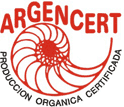Ground-breaking new study finds clear nutritional differences between organic and non-organic milk and meat
16 February 2016
A new study published today, 16 February 2016, in the British Journal of Nutrition shows organic milk and meat contain around 50% more beneficial omega-3 fatty acids than non-organic. In addition to organic milk and meat, the nutritional differences also apply to organic dairy like butter, cream, cheese and yoghurt. The study is the largest systematic reviews of its kind and led by Newcastle University and an international team of experts. ?
Key findings:
- both organic milk (dairy) and meat contain around 50% more beneficial omega-3 fatty acids than conventionally produced products
- organic meat had slightly lower concentrations of two saturated fats linked to heart diseaseorganic milk and dairy contains 40% more conjugated linoleic acid (CLA) - CLA has been linked to a range of health benefits including reduced risk of cardiovascular disease, certain cancers and obesity, but evidence is mainly from animal studies
- organic milk and dairy contains slightly higher concentrations of iron, Vitamin E and some carotenoids
- organic milk contains less iodine than non-organic milk
Speaking about the research, Helen Browning, chief executive of the Soil Association said,“This research confirms what many people have always thought was true -what you feed farm animals and
how you treat them affects the quality of the food - whether it’s milk, cheese or a cut of meat. These scientists have shown that all the hard work organic farmers put into caring for their animals
pays off in the quality of the food they produce - giving real value for money.
“Organic farming methods require all organic farmers to adopt techniques that guarantee nutritionally different foods. Following research in 2014 confirming nutritional differences between organic
and non-organic crops like fruit and vegetables – we can now say for certain that organic farming makes organic food different.”
The difference in Omega 3 is because organic animals have to eat a more natural grass-based diet containing high levels of clover. Clover is used in organic farming to fix nitrogen so that crops and grass grow (instead of manufactured/chemical fertilisers), and this research has found that clover also increases the Omega 3 concentrations in meat and milk. Under organic standards, organic cows must eat a 60% fresh grass based diet or hay/silage (conserved grass).
Historic research highlighted that organic milk contained less iodine. However, the industry has taken steps to address this.?OMSCo?(the Organic Milk Suppliers Cooperative) representing over 65% of the UK's organic milk supply, announced that in 2015 organic milk had achieved comparable levels of iodine to conventional and in 2016, following recent testing of bottled milk, they announced these levels of iodine have been maintained. Richard Hampton, managing director at OMSCo, said; “We initiated projects to boost iodine levels and applied these to our farmer members’ enterprises, and by early 2015 we announced that we’d achieved comparable levels with those in the conventional market. Our latest results have shown that one year on from the initial milestone we’re maintaining those levels.”
Richard Smith, senior farms manager from organic meat producersDaylesford Organic, said; “We farm organic red meat on a grass-based, home-grown forage diet which delivers a superb quality. In addition to other benefits of producing food in an organic system, this land-mark paper now also confirms what we've always known; there is also a significant nutritional difference between organic and non-organic.”
For more information clickhere.
The new research is available?here.
ENDS
For media enquiries, please contact
Natasha Collins-Daniel, Press Office Manager: 0117 914 2448/ 07827 925 380 - ncollins-daniel@soilassociation.org
Hayley Coristine, Digital Communications and Press Officer: 0117 314 5170 - hcoristine@soilassociation.org
Notes to Editors
“Higher PUFA and omega-3 PUFA, CLA, a-tocopherol and iron, but lower iodine and selenium concentrations in organic bovine milk: A systematic literature review and meta- and redundancy analysis”.
Carlo Leifert et al. British Journal of Nutrition
“Composition differences between organic and conventional meat; a systematic literature review and meta-analysis”.Carlo Leifert et al. British Journal of Nutrition
Background information about the importance of omega-3 fatty acids and iodine in our diet can be found here -WHO fatty acid guidelines
Research from Newcastle University published in the British Journal of Nutrition in 2014 found organic crops are of a much higher nutritional quality than their non-organic counterparts. The peer reviewed research, a 'meta-analysis' of 343 previous studies found significant differences between organic and non-organic farming. The research, presented strong evidence that switching to food produced using organic standards can lead to increased intake of nutritionally desirable antioxidants, without increased calories, as well as a reduced intake of potentially harmful cadmium and pesticides. More?here?
The Soil Associationwas founded in 1946 by farmers, scientists, doctors and nutritionists to promote the connection between the health of the soil, food, animals, people and the environment. Today, the Soil Association is the UK's leading membership charity campaigning for healthy, humane and sustainable food, farming and land use. Its chief executive is Helen Browning, and chair of trustees is Dennis Overton.
Soil Association Certificationis a wholly owned subsidiary which certifies over 70% of all organic products sold in the UK. Certifying organic food and farming
since 1973, and more recently, organic textiles, health and beauty products, the team has built up extensive practical experience and provides unrivalled support before, during and after
certification. It also audits other schemes within catering and forestry, including the Food for Life Catering Mark, and the FSC and PEFC forestry standards internationally, delivering assurances
of quality and provenance that industry and consumers can trust. Its chief executive is Martin Sawyer and its independent board is chaired by Nick Buckland.
To find out more visitwww.soilassociation.org
Daylesford Organic?
The seed that grew into Daylesford Organic was sown over thirty-five years ago when Carole Bamford recognised the importance and benefits of organic farming. The family’s estates in Staffordshire
and Daylesford in the Cotswolds are organically certified by the Soil Association and are committed to sustainable farming
Daylesford Organic is dedicated to growing, producing and cooking real food, organically
•Food comes straight from their farm to your fork: meat and poultry, fruit and vegetables from the market garden, bread from the bakery, and cheese, milk and yoghurt from the creamery. When
Daylesford doesn’t make a product farm it is sourced from artisan suppliers who share their commitment to quality and sustainability •In the last few years Daylesford Organic has won over 100
national and international awards for their produce, farmshops, cafes and farms
Daylesford Organic opened its first farmshop and café in Gloucestershire in 2002 and has grown to include 3 farmshops and cafes in London, as well as concession in Selfridges and is available on
Ocado
Daylesford Organic, Daylesford, Near Kingham Gloucestershire, GL56 OYG; www.daylesford.com; 01608 731 700
















